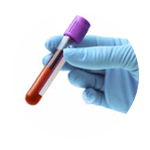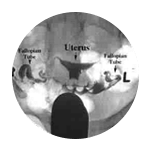Many different factors could affect your fertility. Even if you are not currently trying for a baby or have concerns about your fertility health, it may be worth having a fertility check. There are various screening tests that can be done to evaluate fertility. We offer both fertility assessments and tests for men and women.
Female
By looking at things like your health, medical history and lifestyle, our female fertility tests for women allow us to assess your individual situation and, if needed, decide on the best way to help.
What does a female fertility assessment involve?
At your assessment we’ll look at both your general and fertility health and take you through a few key tests.
During your assessment, we'll evaluate the following :
Investigations
Male
By testing your semen, screening for infection, and examining your lifestyle, our fertility tests for men allow us to assess your individual situation and, if needed, decide on the best way to help.
What does a male fertility assessment involve?
At your assessment we’ll look at both your general and fertility health and take you through a few key tests.

.png) 0361-2800800
0361-2800800 (+91) 9864103333
(+91) 9864103333





















